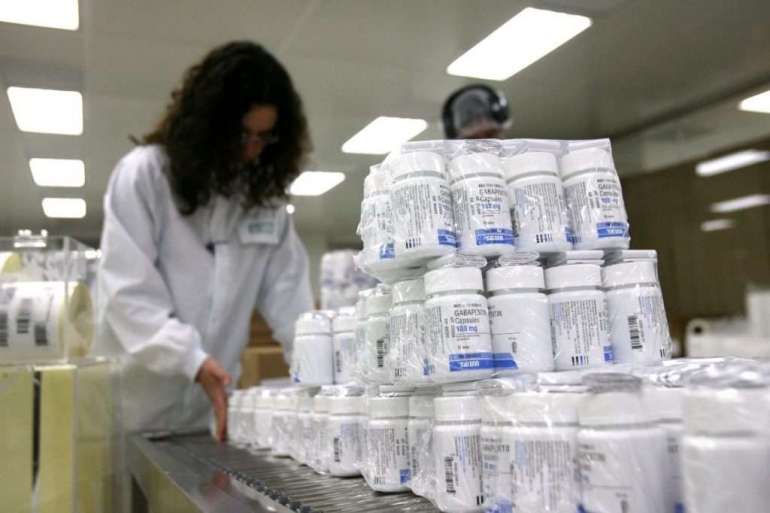House panel says drugmakers inflated prices to boost profits and reap bonuses

The Democrat-led reports come just weeks before Election Day, and amid efforts by President Donald Trump to show progress on slashing drug costs, one of his 2016 campaign promises.
Neither company immediately responded to requests for comment.
Highlights: Celgene raised the price of cancer medicine Revlimid 22 times since it launched in 2005, more than tripling its price. Those hikes were not necessarily linked with rising costs or innovation: In 2014, for instance, former CEO Mark Alles ordered an emergency price increase so Celgene could meet its quarterly revenue targets.
“I have to consider every legitimate opportunity available to us to improve our Q1 performance,” Alles wrote in an email. He appears before the committee Wednesday along with Bristol CEO Giovanni Caforio.
Bristol continued with another increase after buying Celgene last year. Revlimid now costs more than $16,000 a month.
The panel’s report also details tactics that Teva Pharmaceuticals used to ward off competition, such as introducing new formulations of multiple sclerosis medicine Copaxone and contracting with payers to limit generic substitutions for the blockbuster medicine.
Teva has raised Copaxone’s price 27 times since its launch in 1997, inflating its cost from $10,000 then to nearly $70,000 today. Bonuses for Teva workers soared as well — the committee reports that “lower level employees were aware of the direct link between their compensation and Copaxone’s price and revenue.”
Teva CEO Kåre Schultz testifies for the pharmaceutical company on Sept. 30.
The panel said that other costs, such as rebates that drugmakers pay to pharmacy benefit managers, do not account for the consistently rising drug prices. Manufacturers typically point to these rebates — used to ensure products’ places on insurer formularies — to justify price hikes because a chunk of the cost goes to those payer discounts.
Heart of the pricing debate: Democrats have long pushed for Medicare to directly negotiate prices with drugmakers, a stance that President Donald Trump also took on the 2016 campaign trail. The committee argues that companies are “taking full advantage” of Medicare’s inability under federal law to negotiate.
While Trump abandoned the negotiation plan in office, he has tried and largely failed to advance other measures to cut drug costs. The president this summer announced an ambitious plan to link Medicare payments to lower costs paid abroad — an approach the industry vehemently opposes.
The investigation “demonstrates that drug companies are taking full advantage of the federal law that currently prohibits Medicare from negotiating directly with drug companies to lower prices,” said Oversight Chair Carolyn Maloney in a statement.
What’s next: Robert Bradway, CEO of Amgen; Mark Trudeau, CEO of Mallinckrodt Pharmaceuticals; and Thomas Kendris, U.S. president of Novartis, testify on Oct. 1.
Amgen makes Enbrel — one of the world’s best-selling autoimmune drugs — and Sensipar, a kidney failure treatment. Both are blockbuster medicines that have seen significant price increases over the past two decades.
Mallinckrodt sells H.P. Acthar Gel, a decades-old inflammation drug that the manufacturer acquired in 2014 after the previous owner, Questcor, raised its price from $40 to $31,000 per vial. Mallinckrodt continues to raise the price.
Novartis manufactures Gleevec, a cancer medicine that saw prices rise more than 395 percent in roughly 15 years.
The House committee has also subpoenaed pricing documents and strategy from AbbVie, maker of the world top-seller Humira, after accusing the company of refusing to hand over key information.